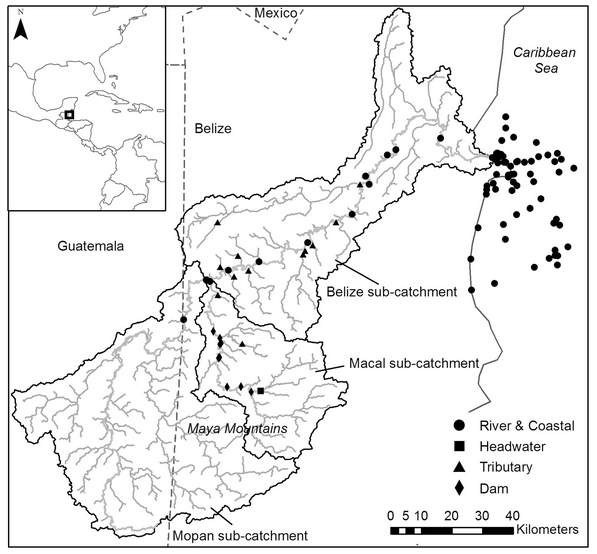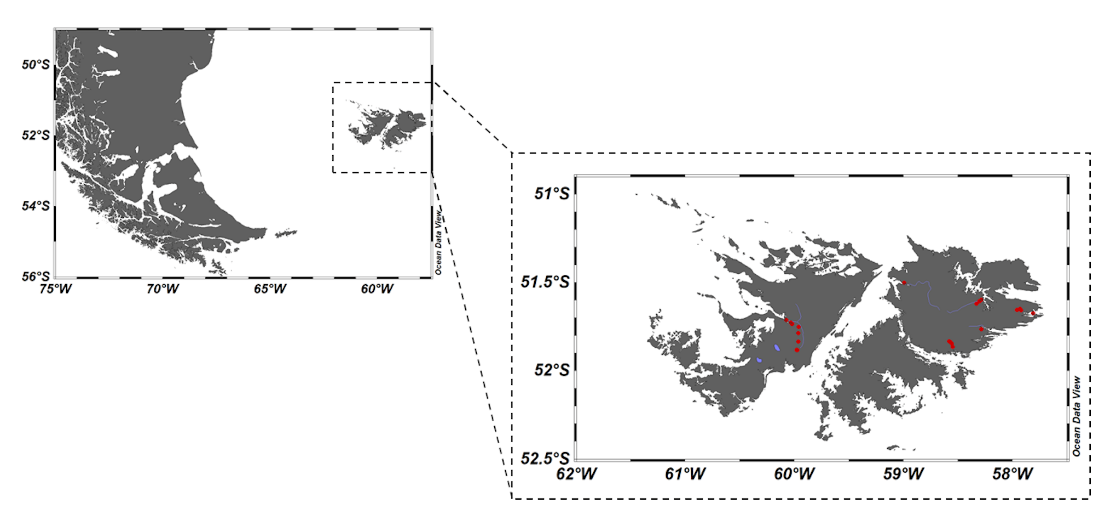Changes in land use and the subsequent increased organic matter transported from land to ocean is a pressing environmental challenge that many countries are facing. The knowledge base obtained during LOCATE has been very important beyond just the application in Great Britain, but valuable for supporting international collaboration.
Members of the LOCATE team have worked in three international projects based in the Falklands, Malaysia and Belize, participating in river and estuarine sampling campaigns as well as in the analysis of the data.
Internationalisation was key for LOCATE to grow and collaborate with other partners in similar environmental problems and to increase LOCATE scientific and stakeholder networks.
Belize
The main objective of the work done in Belize was to study the effect of deforestation and the agricultural expansion on the amount of terrestrial organic matter exported and its potential effect on the shallow barrier reef surrounding Belize coast.
Two sampling campaigns were completed during October 2018 and 2019 from the ridge to the reef. Furthermore, monthly sampling assessed the seasonal variability in the composition of the riverine organic matter. Data showed that the terrigenous organic material was highly degraded in agricultural catchments.
More info can be found in: Felgate et al. 2021. JGR: Biogeosciences, 126(6), e2021JG006295. doi.org/10.1029/2021JG006295
Falklands
The Falklands are amongst the most carbon-rich peatland areas in the world. Soil erosion and drying are two of the main threats of these areas which could cause habitat loss and a reduction of their carbon storage. As part of the Defra, UK Darwin Initiative: The Darwin Initiative - DPLUS110, several researchers from the LOCATE team quantified the terrestrial organic matter export in these natural low-anthropogenic modified systems over two sampling campaigns in November 2017 and November 2019. Results from the field campaigns suggested that carbon-rich terrigenous materials were transported without alteration from rivers into coastal areas.
- More information about the Darwin Initiative can be found here: https://www.darwininitiative.org.uk/project/DPLUS110/
Malaysia
The aim of the 2017 study in Malaysia was to establish the influence of deforestation practices and palm plantations on the terrestrial export of organic matter in tropical reach peatland areas.
Find out more

